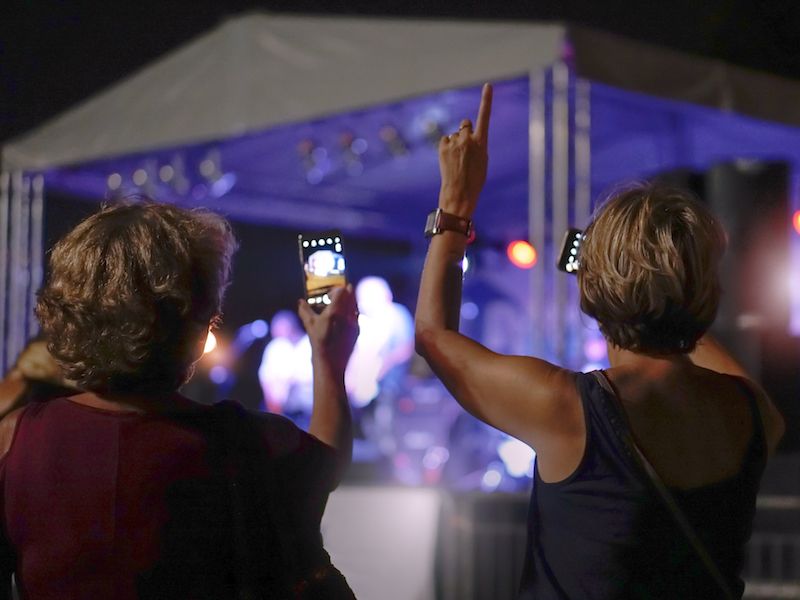
Summer has finally arrived, and it’s time for all that fun we’ve been getting excited about: swimming in the pool, going to the beach, and some activities that can damage your ears. That’s right, summer has a few hidden hazards to your hearing, either from loud noises or the external situations you could find yourself in. Any sounds above 80 decibels could result in harm to your hearing, while enduring hearing loss can take hold in swimming pools or other bodies of water. You need to take precautions and be conscious of your surroundings in order to keep your hearing safe this summer. Keep on reading to learn the summer’s six hidden threats to your hearing.
When You go to Concerts, Put on Ear Protection
Whether you’re at an indoor venue or an outdoor concert venue you still should wear ear protection during live music. 90 decibels is inside the danger zone for ear damage and live music reaches this volume even when you’re at outdoor shows. That’s why it’s always a smart strategy to wear earplugs regardless of whether you’re going to a show indoors or outdoors. Earplugs reduce the sound while still permitting you to hear and enjoy the music. If you’re going to a performance with young children, think about getting them a heavy duty set of earmuffs since their hearing is much more vulnerable than those of adults.
Fireworks Can Damage Your Ears
Honestly, there are a lot of reasons to avoid fireworks in the summer. This is not about the professional 4th of July displays, we mean the backyard fireworks that cause hundreds of injuries during the summer season. Home fireworks reach volume levels of over 155 which can injure your ears along with causing hand problems, loss of sight and home fires. This 4th of July, leave the fireworks to the pros and enjoy the show from a safe and sound distance.
Mowers Can Bring About Hearing Loss
If you love to take care of your lawn, mower, edger, and trimer are your best friends. But that muffled sensation in your ears is a signal that your hearing has taken damage. That’s because the lawn tools, which are constantly loud, impact your hearing over time. Maybe you’ve noticed landscapers using some type of hearing protection, you should take a hint from them and use earplugs or earmuffs next time you work on your lawn to ensure your hearing stay healthy.
Pools And Beaches, What You Should do to Protect Your Ears
Huge numbers of people suffer from swimmer’s ear each summer, which occurs when bacteria-laden water becomes trapped inside your ear canal. Painful earaches and swelling result when the ear gets infected by the bacteria. It’s not just rivers and lakes that hold these bacteria, they can sometimes be found in pools and hot tubs if they aren’t cleaned and treated properly. No lasting damage should take place if you get your hearing examined by a hearing expert. To be safe, when your swimming in your pool, use specialized swimmers earplugs and keep the chemical balance precise to decrease the chance of getting swimmers ear.
Boats and Other Water Sports
If you enjoy the water, summer is beach and boating time for you. But, boat and jet ski engines are usually loud,we’re talking more than 100 decibels. Irreversible hearing injury can happen after about 15 minutes of exposure to that much noise. Again, it’s probably in your best interests to use a pair of disposable, foam earplugs while you’re out on the water to make certain you don’t unwittingly injure your hearing.
Your Ears Can be Damaged by Car Races
It doesn’t matter what kind of auto racing you enjoy, motorcycle, midget, Formula 1, drag racing or stock cars. Every one of them can present a huge issue for your hearing if you go to race after race during the summer. 120 dB is inside of the danger zone for hearing impairment and a number of races go well above this. Earplugs are your best bet at these races, although your children should probably use the earmuffs we mentioned earlier. If you don’t, you may not be able to enjoy the sound of those engines as you get older.
